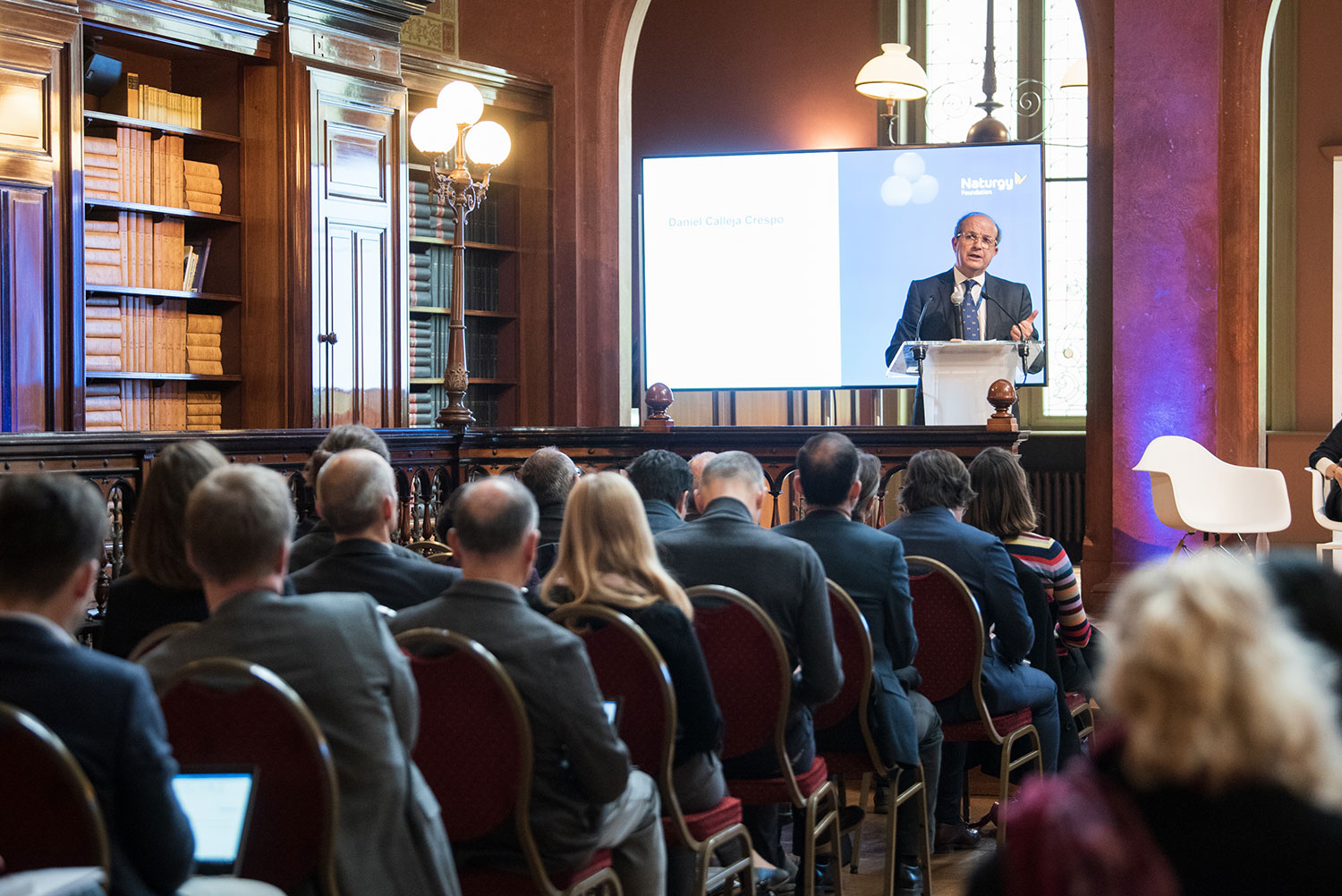Nathalie Roebbel (WHO): “Urban pollution leads to seven million premature deaths every year”
Together with Berlin and the region of Lombardy, the City Council of Madrid presented the plans they have implemented to combat urban pollution and improve air quality at an event where the WHO warned that 91% of the global population is breathing in polluted air.
Poor air quality in the EU represents an annual cost of 24 billion euros, said Daniel Calleja, Director-General for the Environment of the European Commission.

“The combined effects of outdoor and domestic air pollution lead to around seven million premature deaths every year due to the increase in cerebrovascular accidents, heart disease, chronic obstructive pulmonary disease, lung cancer and acute respiratory infections.” The WHO Coordinator for Air Pollution and Urban Health, Nathalie Roebbel, highlighted these figures to warn of the consequences of air pollution in cities at a seminar organised by the Naturgy Foundation in Brussels.
Nathalie Roebbel stressed that 91% of the global population breathes polluted air and that more than 3 billion people cook with polluting energy sources in their homes. “The world’s cities are growing fast, which is why policies to improve urban air must tackle this increased exposure by people living in urban environments,” said Nathalie Roebbel.
The WHO representative underlined the need for global leadership, coordination between the various sectors of society and inter-governmental organisations, national and local plans, and, above all, for health to be placed at the centre of urban policies. She called on public institutions to invest more in prevention methods, which currently account for only 4% of public health spending.
In this regard, the Managing Director of the Naturgy Foundation, María Eugenia Coronado, said “there is no one single solution for trying to mitigate pollution in our cities, which mainly comes from road traffic, meaning it is essential to examine each urban area in detail to apply the best specific measures capable of achieving the desired reduction of environmentally harmful emissions.” She also highlighted the need to establish suitable measures for each city based on the ratio between cost-benefit and the desired results, as well as other factors including geographic and weather conditions, the habits and needs of inhabitants, and the alternative technologies and fuels that allow for greater sustainability in each case.
In turn, the Director-General for the Environment of the European Commission (EC), Daniel Calleja, who helped open the seminar, emphasised the improvement in air quality in urban areas through actions at European, national, regional and local levels, as well as by the private sector. Daniel Calleja said that poor air quality in the EU leads to 400,000 premature deaths and represents a cost of 24 billion euros every year. He also stressed that air quality is the second-highest concern among EU citizens, behind climate change. For that reason, the European Commission has launched a regulatory assessment process on its environmental legislation.
Share